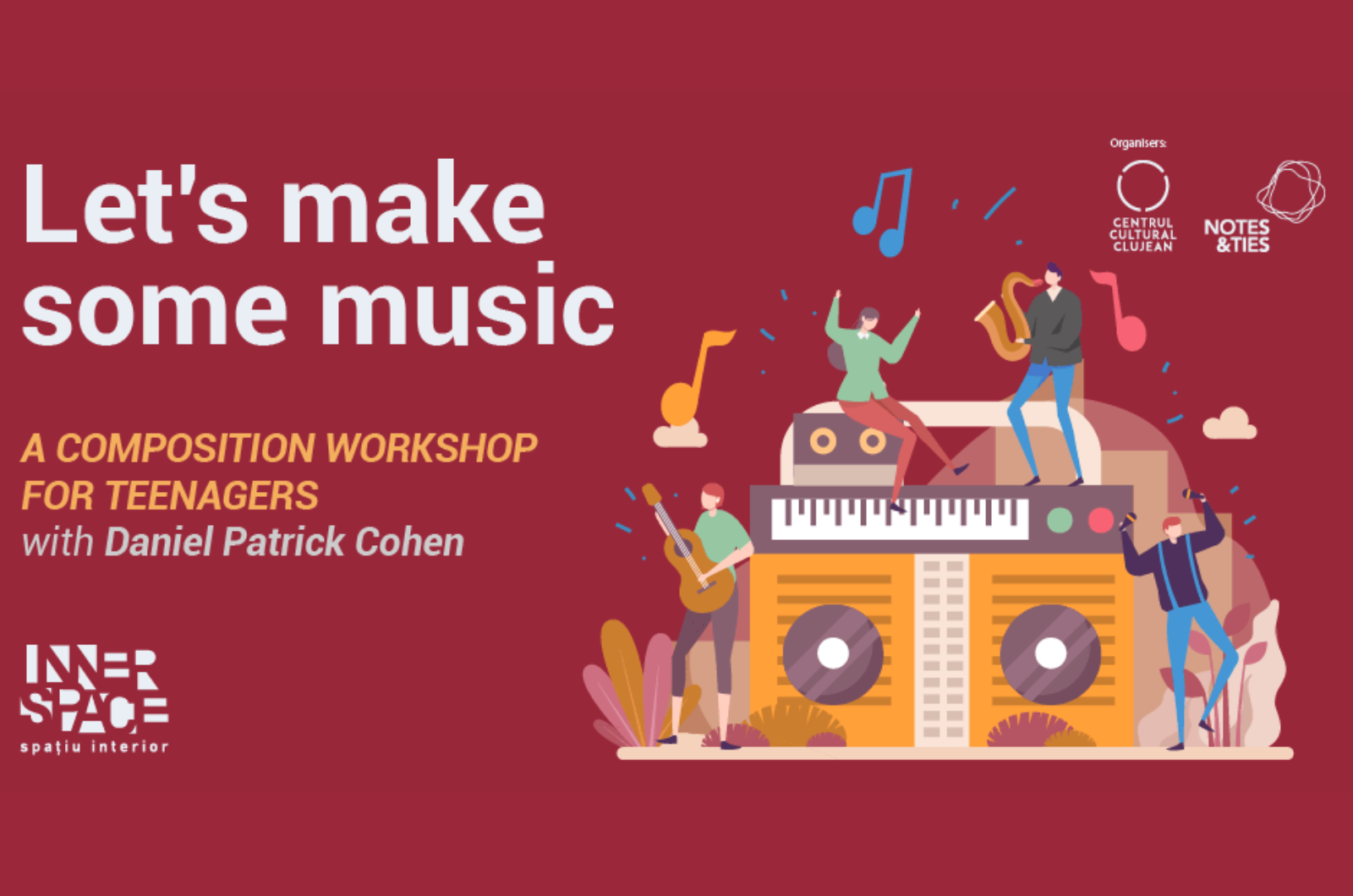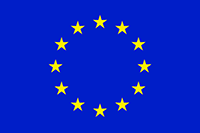Unspeakeable
Unspeakable was a publicly funded pilot carried out by Cluj Cultural Centre in collaboration with composer Daniel Patrick Cohen and Notes & Ties Association. The project was designed to give young people with any musical background (including none) the opportunity to express themselves through music. The project was inspired by UK research showing that artistic expression can benefit well-being and even be part of treatment for mild to moderate mental illness.
Participants were given an introduction to the three instruments available to them for composition and given multiple ways in which to begin the creative process. The springboard for the creation of their pieces could be to "steal" an idea and do something new with it, to use a memory for inspiration, to try to describe how they wanted the piece to sound in words, to improvise on a keyboard or to record voice notes. For each avenue into the process, an eclectic mix of examples was given to inspire a can-do attitude.
Once some progress had been made, a lively session took place in which professional musicians played the ideas, however embryonic they were. With the composer's guidance, but never interference, momentum was created with which all participants achieved the goal of composing a 1-minute piece of music for Clarinet, Horn and Cello, presented at a public concert.
Making music can offer a much-needed outlet for expressing feelings in a way which participants may not have previously considered. In addition to the short-term benefit of connecting with peers and being involved in a creative, meaningful activity, this project aims to make a long-term impact on their awareness of the role of art expressing the inexpressible.
Main results and impacts produced by the initiative on the selected MESOC crossover themes
The experience was well-received by the teenagers who took part, but notably also by the wider public, including parents and musicians. It was specifically said that overcoming early frustration through perseverance was beneficial, and it was appreciated that the project was spread out into one or two sessions per week, giving ample time for reflection on the creative process.
All participants requested to be informed again if the pilot were to be repeated.
The variety of backgrounds (musical and general) amongst the peers gave rise to positive social interactions, and assisted with raising awareness of the potential of art as a means of personal expression.
It was appreciated that the group size was limited (12-15) meaning that participants could be treated as individuals and given space and patience.
Besides Unspeakable initiative, Notes & Ties Association explores in all its activities the benefits of music on people’s well-being. For instance, during 2020, they organized a Summer School Program for 40 FLUTE and CLARINET young musicians from Romania (maximum 35 years old). The Summer School Program included, among music theory classes, also other classes to provide an extra value to their professional experience. In this regard, they invited a music therapy specialist to provide guidance to the musicians in their process of understanding and managing their emotions, the emotions involved in each showcase and also the emotions felt considering the career of a musician.
Keeping emotions under control is necessary for the musician to reveal their artistic, technical and interpretive qualities, not constrained by other factors that could affect him/her.
In other words, in the practice of the Notes & Ties Association there is a concern on interdisciplinary approach of music and well-being for different beneficiaries:
- for a specific vulnerable category of beneficiaries, such as adolescents - in which social value is created by the interactions between attendees with very different levels of income, education, interests and the collaborative practices between artist and target group. The beneficiaries may feel that they belong to a group, being accepted and tolerated as such.
- directly for the musicians, the creators of the musical experience. The types of the social values can be different among different groups and musicians may experience a sense of identity, freedom of expression and responsibility for them and their audience. The musician's well-being is important to create meaningful cultural experiences for the audiences.
Other relavant impacts
Unspeakable impact and results:
Live, recorded concert with pieces introduced by the participants on stage. The experience was overall well-received by teenagers and by everyone - audience, parents, musicians, etc. The teenagers experienced different feelings during the entire period - from being bored, to be enchanted, even frustrated, but in the end everyone was really happy to be part of this experience; these feelings are normal, considering the implication in a new creative process. Working on music from scratch increases ownership of the result and is a good exercise for setting goals and working on something challenging over a long period of time with little immediate results and a large dose of unknown. Being "taken seriously" from a creative point of view, having real players, a score, serious creative debates and complete creative freedom increases self-confidence and can really motivate participants for further creative pursuits.
Elements that contributed to the generation of these impacts
- The interest and sensibility of the project manager at Notes & Ties for the relation between art and well-being; her Phd research topic being psychological benefits of music (New competences /Engagement)
- The city's bid for the European capital of Culture (ECoC) involved a highly participative process; (Approach / Access to funding)
- The Notes & Ties Association participated to the ECOC related consultations and proposed this workshop for the ECoC programme, although the city did not win the title, Notes & Ties Association and Cluj Cultural Centre joined forces to pilot Unspeakable in 2019 (Resources: calls and funding; Freedom to Experiment)
- The project involves the cooperation of the local association (dedicated to music) with an English Composer (living in Romania), whose international experience included contacts with similar projects (Networking /Partnerships)
- At the start of thinking about the project they were inspired by a UK programme which became a model of sorts. "Arts and Minds" are taking research, supporting the power of the arts to transform health and well-being and using the arts to help people living with mental health challenges. (Transfer of knowledge)
- In the context of Romania, there is a recent flowering of extracurricular activities which has begun with "Școala Altfel" (literally "Different School") in which schools across the country dedicate whole weeks to developing interests outside of the school environment (Interdisciplinary approach, openness, experimenting)
- Considering the output, the project was run with reasonably low resources. A computer, speaker and projector were used, and it was sometimes useful for a keyboard to be available. Three professional musicians, with appropriate soft skill sets, were sought and the availability of different instruments allowed a wide scope of different styles. (Resources: frugality but high competences)
- The programme was highly participatory, with great emphasis on giving the participants as much autonomy as possible and was developed with an awareness of other art therapy projects. (Approach, Knowledge sharing)


